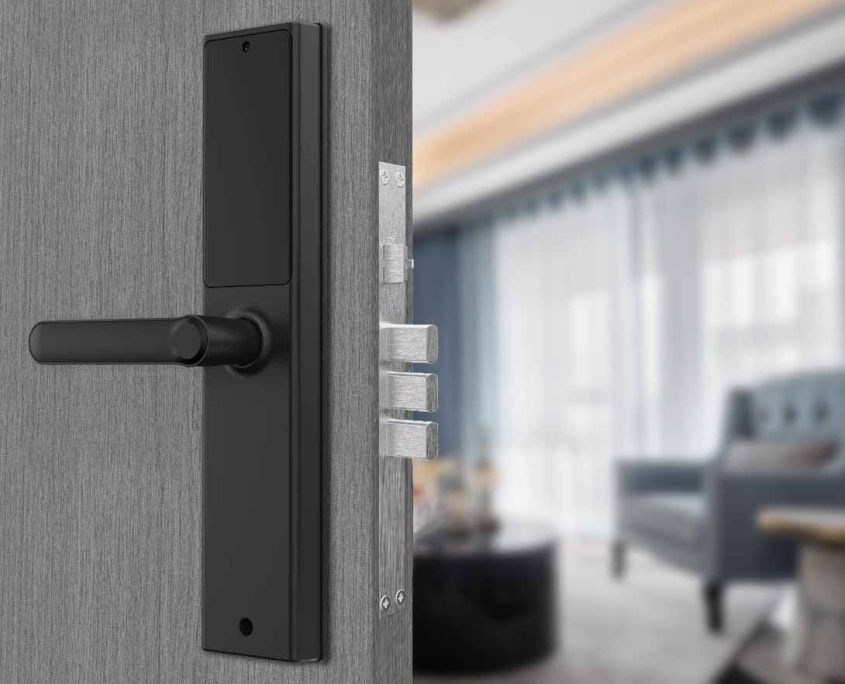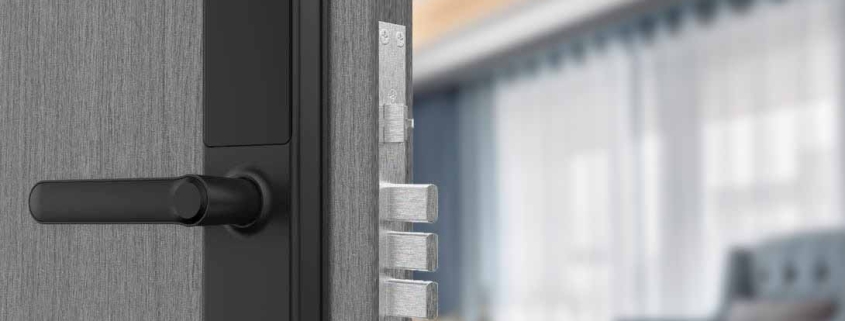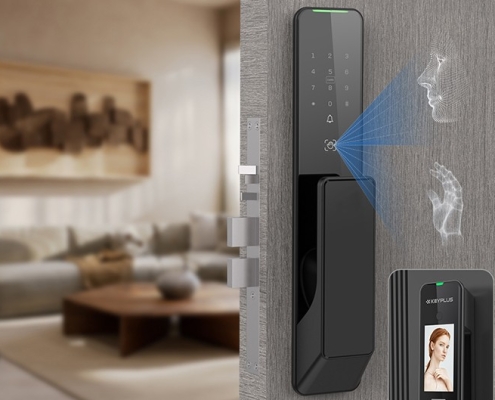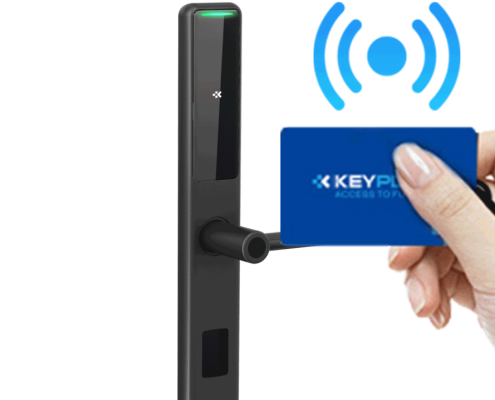Are Smart Locks Better Than Traditional Locks?
In today’s connected world, smart locks are becoming increasingly popular in American homes. But are they truly better than traditional deadbolts and keyed locks? This comprehensive guide examines both options across security, convenience, cost, and reliability to help you decide which is right for your home.
Understanding the Basics: Smart Locks vs. Traditional Locks
What Are Traditional Locks?
Traditional locks have been securing homes for centuries and include:
-
Deadbolts (single/double/triple cylinder)
-
Knob locks (common but less secure)
-
Mortise locks (higher security commercial-grade)
-
Key-in-knob locks (basic residential security)
These mechanical locks operate purely through physical keys and manual turning mechanisms.
What Are Smart Locks?
Smart locks are electronic locking systems that offer keyless entry through:
-
Keypads (PIN code entry)
-
Smartphone apps (Bluetooth/Wi-Fi connectivity)
-
Biometrics (fingerprint/facial recognition)
-
Voice control (Alexa/Google Assistant integration)
-
Remote access (lock/unlock from anywhere)
Security Showdown: Which Is More Secure?
Traditional Lock Security
Pros:
No digital vulnerabilities (can’t be hacked remotely)
Proven technology with standardized security ratings (ANSI Grade 1-3)
No power/battery dependence
Cons:
Vulnerable to lock picking/bumping (YouTube has made this alarmingly easy)
Physical keys can be copied/lost/stolen
No activity monitoring (no way to know who entered or when)
Smart Lock Security
Pros:
Advanced encryption (most use 128-bit or 256-bit AES)
No physical keys to lose/duplicate
Activity logs track all entries/exits
Temporary access codes for guests/service people
Tamper alerts and auto-locking features
Cons:
Potential hacking vulnerabilities (though rare with proper security)
Dependent on power/batteries
Some models have weaker physical construction than high-end deadbolts
Security Verdict: While traditional locks are vulnerable to physical attacks, smart locks introduce digital risks. High-quality smart locks (like those with ANSI Grade 1 certification) generally offer superior security when properly configured.
Convenience Comparison
Traditional Lock Convenience
Pros:
Always works (no tech failures)
Universally understood operation
No batteries to replace
Cons:
Key management is inconvenient (losing keys is common)
No remote access capability
Rekeying is required when keys are lost/stolen
Smart Lock Convenience
Pros:
Keyless entry (never get locked out)
Remote access via smartphone
Temporary access for guests/deliveries
Integration with smart home systems
Auto-locking features prevent unlocked doors
Cons:
Learning curve for some users
Potential app/connectivity issues
Battery changes required (typically every 6-12 months)
Convenience Verdict: Smart locks win overwhelmingly for modern lifestyles, eliminating key hassles and offering remote management capabilities traditional locks can’t match.

Cost Analysis
Traditional Lock Costs
-
Basic deadbolt: 20−50
-
High-security deadbolt: 50−150
-
Professional installation: 75−150
-
Rekeying: 50−100 per occurrence
Smart Lock Costs
-
Basic smart lock: 100−200
-
Premium smart lock: 200−400
-
Installation: 0−150 (many are DIY-friendly)
-
No rekeying costs (digital credentials can be revoked)
Cost Verdict: While smart locks have higher upfront costs, they eliminate recurring rekeying expenses and provide value through enhanced features.
Reliability Factors
Traditional Lock Reliability
Always operational (no tech failures)
Works during power outages
No software updates needed
Smart Lock Reliability
Most include physical key backup
Battery life typically 6-12 months
Many work locally (Bluetooth) without internet
Potential connectivity issues
Firmware updates occasionally required
Reliability Verdict: Traditional locks are simpler and more consistently reliable, but quality smart locks with backup options are nearly as dependable for daily use.
Special Considerations for American Homeowners
Climate Factors
-
Extreme cold can affect smart lock batteries
-
Humidity/salt air may impact electronic components
-
Traditional locks generally withstand all weather conditions better
Home Insurance Impacts
-
Some insurers offer discounts for smart locks (check with your provider)
-
High-security traditional locks may also qualify for discounts
Rental Property Needs
-
Smart locks are ideal for Airbnb/rental properties
-
Traditional locks may suffice for long-term rentals
Who Should Choose Which Option?
Choose Traditional Locks If You:
-
Prefer simple, time-tested technology
-
Live in areas with poor internet connectivity
-
Want the absolute lowest maintenance option
-
Have concerns about digital security
Choose Smart Locks If You:
-
Want keyless convenience
-
Frequently need to grant temporary access
-
Value remote monitoring/control
-
Have other smart home devices
-
Want enhanced security features
Best of Both Worlds: Hybrid Solutions
Many homeowners opt for a combination:
-
Primary entry: High-security smart lock
-
Secondary doors: Traditional deadbolts
-
Backup: Physical key hidden in secure location
This approach provides smart convenience while maintaining traditional reliability where needed.
Final Verdict: Which Is Better?
For most modern American households, smart locks offer significant advantages in convenience and functionality that outweigh their slightly higher cost and minimal reliability concerns. However, traditional locks remain a perfectly valid choice for those who prioritize simplicity and absolute reliability over high-tech features.
The best choice depends on your:
-
Budget
-
Technical comfort level
-
Security needs
-
Lifestyle requirements
As smart lock technology continues improving and prices decrease, they’re becoming the clear future of home security. But there’s still a strong case for traditional locks in certain situations.
What’s your preference? Have you made the switch to smart locks?








